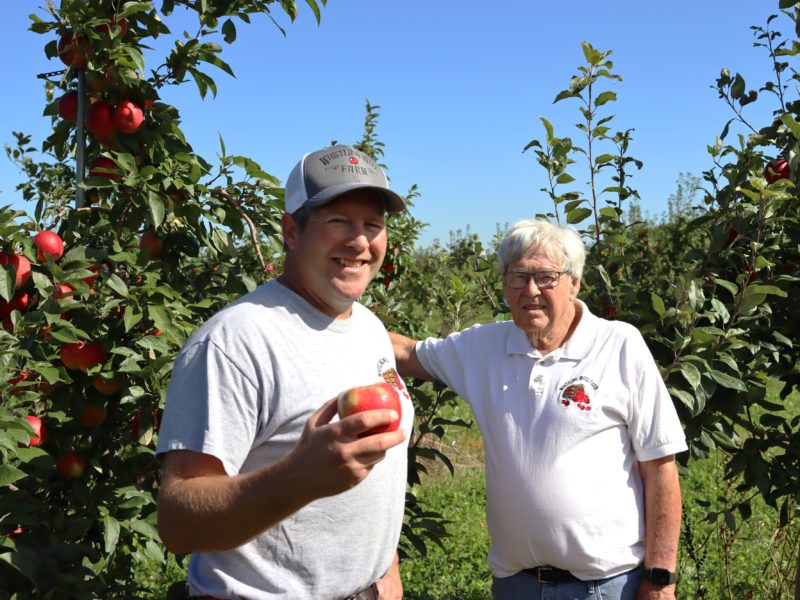Starting from Seed: A Homegrown Orchard
Nothing announces the arrival of fall quite like that first crisp bite of a Minnesota-grown apple. Or should we say the First Kiss? Bringing the highest-quality local apples to your table is always our priority, beginning with sourcing. What better way to know your food & know your farmers than to hear directly from them? In celebration of apple season, we spoke with Charlie Johnson, founder of Whistling Well Farm in Hastings MN, to cut to the core of what makes his orchard special.

Tell us your story in connection with this orchard.
I always wanted to live on a farm and in 1972 was able to purchase a 20 acre farm in Washington County/Denmark Township dating back to 1865. With help from great farm neighbors we started growing produce and raising chickens. We soon realized that was not enough to support the farm and decided to integrate apple trees. We now own over 100 acres, with over 40 devoted to 18,000 apple trees.
What is it like operating an apple orchard in the home state of the University of Minnesota?
As apple growers we are very fortunate to be associated with the University of Minnesota. The U of M has the number one breeding program in the nation. Minnesota growers have immediate access to new varieties upon release and have exclusive rights to some. We’re required to sign contracts on those varieties. Some require paying annual lease agreements with half going to the U to support their breeding program. Trees are usually ordered from commercial growers in Washington. Come planting, it’s usually 3-5 years before any apples can be harvested. Some varieties have been tested for 25 years!
What is “IPM” certification, and how does the practice look at Whistling Well each growing season?
Integrated Pest Management is a science and sustainability-based process combining pest biology, environmental data, and technology to mitigate pest damage in a way that minimizes economic costs and risks to people, property & the environment. Our examples include trapping 7 insect varieties and reporting results to the Minnesota Department of Agriculture and hosting a national weather station managed by Cornell University.
Will you share the lore about the “whistling well”?
Our farm is less than a mile from the St. Croix River. Since we have a very old well, air flows through the cracks in the bluffs and reaches it. Under certain barometric conditions, air is sucked up to the surface giving off a whistling sound. That became the unique name for our farm.